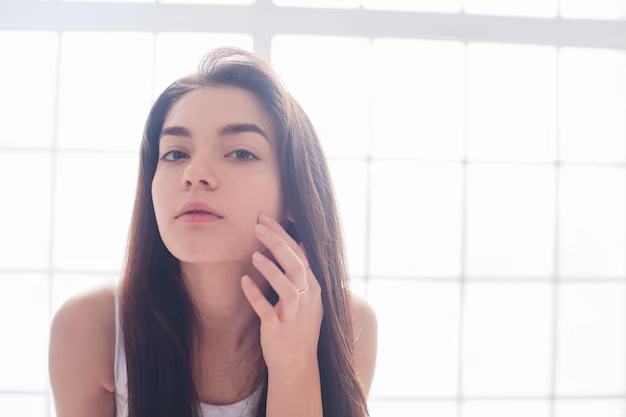Does Biotin Lead to Acne Breakouts? Unveiling the Truth
In the quest for luscious locks and robust nails, biotin supplements have become a household staple for many. Marketed broadly for their benefits in enhancing hair, skin, and nail health, biotin is a buzzword in the world of beauty and wellness supplements. However, along with its growing popularity, an important question has surfaced—can biotin cause acne? It's a concern that has sparked numerous debates and piqued the curiosity of both users and healthcare professionals alike. Today, we delve deep into this topic, aiming to shed light on the relationship between biotin and acne.
What is Biotin?
Biotin, also known as vitamin B7, is a member of the B-vitamin family. It plays a crucial role in converting food into energy, supporting the metabolism of carbohydrates, fats, and proteins. Apart from metabolic functions, biotin is known to:
- Promote healthy hair, skin, and nails
- Aid in embryonic growth during pregnancy
- Support overall nervous system health
Benefits of Biotin: Biotin's contribution to enhancing hair and nail strength is backed by various studies and anecdotal evidence, making it a popular supplement choice. However, its effectiveness in promoting skin health remains debated.
Biotin and the Skin
Understanding Biotin's Role in Skin Health
While biotin is hailed as a champion for hair and nails, its impact on skin is less clear. Some believe biotin deficiencies can lead to skin rashes and other dermatological issues. As a coenzyme involved in fatty acid synthesis, biotin supports skin integrity and barrier functions.
Yet, several people have reported skin issues such as acne after starting a biotin supplement, creating a puzzling contradiction in biotin's skin saga.
Can Biotin Cause Acne?
The exact science linking biotin to acne is not definitive, but certain theories have emerged:
Biotin and Vitamin B5 Competition: It's suggested that high doses of biotin could interfere with the absorption of vitamin B5 (pantothenic acid), which is vital for skin health. Vitamin B5 supports the skin's ability to reduce acne by influencing sebum production. An imbalance caused by excess biotin might lead to acne.
Oil Production and Clogged Pores: With disrupted vitamin B5 levels, sebum production could surge, clogging pores and triggering acne breakouts.
Genetic and Individual Sensitivities: Some individuals might have a genetic predisposition or sensitivity that makes them more susceptible to acne when taking biotin.
Although acne is not listed as a common side effect of biotin, these theories can offer explanations to those who experience skin changes when taking the supplement.
Addressing Acne Concerns When Using Biotin
If you suspect biotin is responsible for your skin problems, consider the following strategies:
Moderation is Key
- Assess Dosage: Often, people consume more biotin than needed. Evaluate if your current intake exceeds dietary recommendations and adjust accordingly.
- Balanced Diet: Opt for a nutrient-rich diet that supports a healthy balance of vitamins, including both biotin and vitamin B5.
Listen to Your Body
- Monitor Your Skin's Reaction: Keep track of your skin's response when starting or adjusting your biotin intake.
- Consult Professionals: Speak with a healthcare provider or dermatologist who can help determine if biotin may be affecting your skin.
Alternative Ways to Achieve Healthy Hair and Nails
While biotin might be popular, there are other ways to support your beauty regimen without potential skin repercussions:
Dietary Approaches
- Balanced Diet: Foods like eggs, nuts, seeds, salmon, and green leafy vegetables naturally contain biotin. Maintaining a balanced diet often suffices for most individuals and provides a mix of essential vitamins.
- Hydration: Drinking enough water aids in maintaining healthy skin and preventing dry skin.
Supplement Smartly
- Consider Multivitamins: Multivitamins provide a balanced mix of nutrients without excessively high doses of biotin.
- Explore Other Nutrients: Zinc, vitamin E, and omega-3 fatty acids are known to support skin, hair, and nail health.
Lifestyle Changes
- Maintain Good Hygiene: Regular cleansing can help manage oil levels and potential buildup on the skin.
- Stress Management: Reducing stress through activities like yoga or meditation can positively impact your skin.
Real-Life Experiences
Hearing from those who have walked this path can provide further insights:
Personal Stories
- Case 1: Emily noticed a spike in acne shortly after starting biotin. Upon lowering her intake and consulting with a dermatologist, her skin improved considerably.
- Case 2: For Jack, switching to a diet-focused approach, rich in natural biotin sources, and utilizing topical acne treatments helped both his skin and hair health without the need for supplements.
These examples underscore the importance of understanding and responding to how your own body reacts to supplements.
Future Research and Considerations
While anecdotal evidence abounds, scientific research on the biotin-acne connection remains limited. Healthcare professionals often emphasize the personalized nature of skincare and supplement effects. As research progresses, we hope to see clearer guidelines to help individuals make informed choices.
Whether or not you're convinced by the biotin-acne link, the key takeaway is to observe your body's unique responses carefully. Supplements can be part of a healthy lifestyle, but they should not overshadow the importance of a balanced diet and attentive self-care routine.
In pursuing health and beauty goals, educate yourself on the supplements you use. Should any concerns arise, consulting healthcare professionals can provide the personalized guidance needed to navigate this journey knowingly and confidently.
🌟 Quick Summary: Biotin and Acne Considerations 🌟
Why Biotin?
- Supports hair and nail health
- May compete with vitamin B5
Acne Concerns:
- Disrupts sebum production balance
- Monitor an excessive intake
Healthy Alternatives:
- Emphasize a balanced diet
- Explore multivitamins
Action Points:
- Observe skin changes with supplements
- Seek professional advice if needed
Taking a thoughtful approach to supplements can help balance beauty benefits with potential skin impacts!

